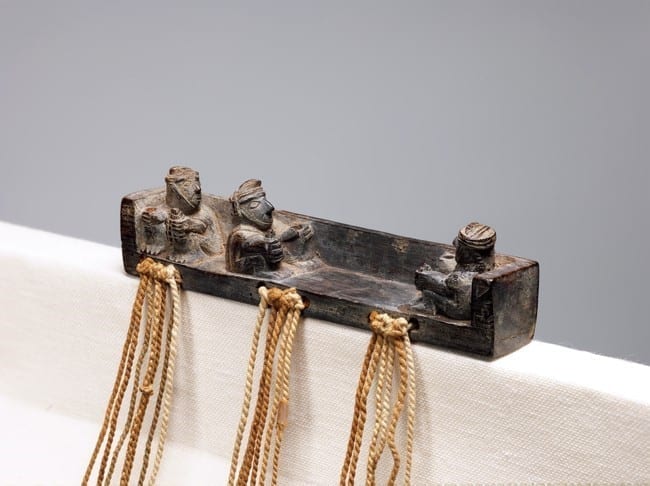
Knotty Testimonies: Reckoning with Andean Cord-keeper Accounts from the Mid-sixteenth Century
Spanish and Portuguese Nicole. D. Legnani
November 7, 2019 · 12:00 pm—1:30 pm · 209 Scheide Caldwell House
Renaissance and Early Modern Studies

In the Spanish colonies, double-entry bookkeeping (DEB) coexisted with, incorporated and transformed indigenous techniques for administering population and resources, as Gary Urton has demonstrated in his various studies on the khipu, including but not limited to historical accounts, but also inventories. Transcriptions and translation of sixteenth-century khipukamayuq testimony suggest that even as these Andean forms of accounting do perform an abstraction of the materials being counted, both their tangibility and their encoding of social relations insist on an economics of reciprocity that do not readily translate into the economic rationalism of early modern capitalism and point, instead, to alternate forms of relating labor, the state, and modes of exchange. Perhaps they indicate a place outside colonial capitalism and pastoral power, even as colonial authorities sought to harness khipu technology for its own settling of accounts.
Nicole. D. Legnani earned her doctoral degree in Hispanic Studies from Harvard University (2014) and is Assistant Professor of Colonial Latin American Studies at Princeton University. She is the author of Titu Cusi: A 16th-century Inca account of the Conquest (2006). Her book manuscript, Trading Fictions: Enterprise, Love and the Law in Iberian Conquests of the Long Sixteenth Century is under contract with the University of Notre Dame’s Oceanic Iberia Series. Her work has appeared in Bulletin of Hispanic Studies and Romance Notes.















